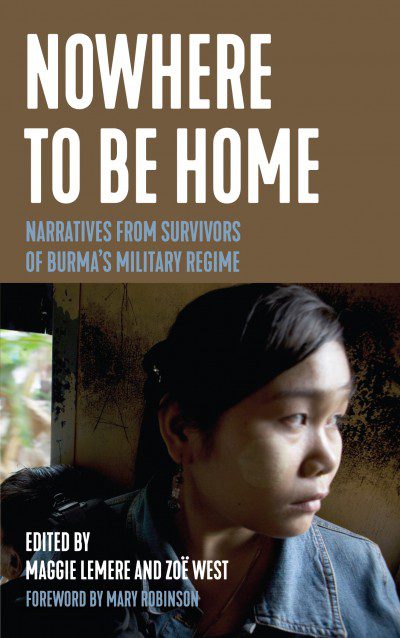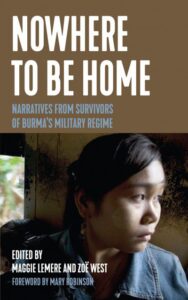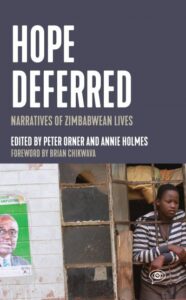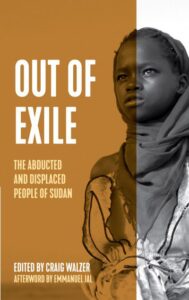The Voice of Witness book series amplifies the stories of people directly impacted by—and fighting against—injustice. We use an oral history methodology that combines ethics-driven practices, journalistic integrity, and an engaging, literary approach.
The books explore issues of inequity and human rights through the lens of personal narrative. Each project aims to disrupt harmful narratives by supporting historically marginalized or silenced communities to tell their own stories in their own words.
Book clubs are useful tools for engaging and interacting with these oral histories and the issues they highlight. Find our handout with guidance on planning and facilitating one here.
Use the questions below to start a book club for Nowhere to Be Home: Narratives From Survivors of Burma’s Military Regime.

Discussion Questions:
- How much did you know about the history of Burma and its military regime before reading Nowhere to be Home? How did the stories in the book contextualize the issues faced by the narrators? What connections were you able to make with other issues that may be more familiar to you?
- Kyaw says of when he was in prison, “I didn’t think of my family or my country at that time; I just thought, We have to work together. We have to resist the torture together.” What do you think are some of the factors that shaped his perspective?
- What do you think Byin’s reasoning for the government banning opium indicate about the relationship between the government and the people?
- Do you agree with Khine Kyaw that the only way to get democracy in Burma is to fight the government with guns? Why or why not? How does this perspective compare and contrast with other narrators in the book?
- Why is Nge happy even though she is struggling after leaving Win Nyut? What were the social and emotional effects of her relationship with him?
- The intelligence officer tells Ma Su Mon that all of the political prisoners are “useless people,” to which she responds that if they were really useless, the government would not be so concerned. What did you make of this interaction?
- Why were Khine’s family subjected to both sides of the violence? What does this indicate about being a civilian in Burma and in areas of conflict more generally?
- Why do you think that, as Aye Mung says, young people think it is impossible to make social change? What do you think this evidences about the social climate in which they live?
- Based on what you know about political oppression in Burma/Myanmar, do you agree with Aye Mung that the NLD, KNU, and KIO are “wasting life” by trying to overthrow the government? Why do you think he feels this way?
- How does Fatima’s family’s class position influence the government oppression they experience and vice versa? What do you think this reveals about the relationship between economic and political oppression?
- Why do you think Hla Min believes in the army by the time he finishes training?
- How did reading these narratives shape your understanding of the experience of living under Burma’s military regime? What parts of the narratives were you most struck by?



